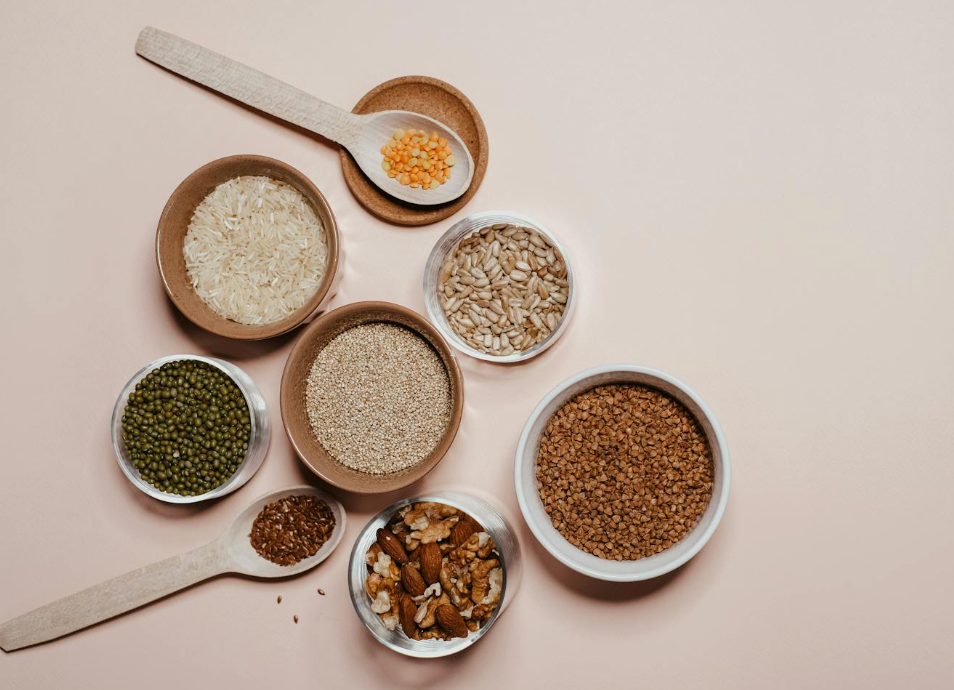Phytoestrogens are plant-based compounds that mimic estrogen in the body, offering a range of health benefits, particularly for women's health. These dietary estrogens occur naturally in various plant foods and can positively influence bone health, cardiovascular health, and even cancer risk. In this article, we'll explore the best sources of phytoestrogens and how they contribute to a healthier lifestyle.
The Power of Soy Foods
Soy foods are among the richest sources of phytoestrogens, specifically soy isoflavones. These compounds have estrogenic and antiestrogenic effects, impacting estrogen levels in the body. Soy protein has been extensively studied, and research suggests that it can be beneficial in reducing the risk of breast cancer, cardiovascular diseases, and even heart disease.
Health Benefits of Soy
Eating soy products like tofu, tempeh, and soy milk can be advantageous for bone health, especially in postmenopausal women. Soy has been associated with improved bone mineral density, reducing the risk of bone loss as estrogen levels decrease. Controlled trials have demonstrated the positive effect of soy on bone mineral density and heart health.
Soy-based foods are also known to aid in weight management, as they are low in saturated fat and high in essential nutrients. Additionally, consuming soy foods may help manage menopausal symptoms like hot flashes due to their estrogenic activity.
Flaxseed: A Phytoestrogen Powerhouse
Flaxseed is another potent source of phytoestrogens, particularly lignans. These dietary phytoestrogens can help lower cholesterol levels and are linked to reduced risks of breast cancer and prostate cancer. Flaxseed is also beneficial for gut health and provides essential omega-3 fatty acids that support heart health and cognitive functions.
Incorporating Flaxseed into Your Diet
Adding flaxseed to your diet is simple: you can sprinkle ground flaxseed on yogurt, cereal, or oatmeal, or blend it into smoothies. Its high fiber content aids in digestion and weight management, making it an excellent addition to a diet rich in plant foods.
Other Notable Sources of Phytoestrogens
Beyond soy and flaxseed, several other foods contain phytoestrogens that can benefit health in multiple ways:
- Sesame Seeds: Rich in lignans, these seeds are great for bone health and cardiovascular health. They can also help manage blood pressure and cholesterol levels.
- Brussels Sprouts and Cruciferous Vegetables: These vegetables are known for their antiestrogenic activities, which can help reduce the risk of breast cancer.
- Red Clover: Often used in herbal remedies, red clover contains isoflavones and can help reduce menopausal symptoms like hot flashes.
- Dried Fruits: Prunes, apricots, and raisins are good sources of phytoestrogens and can support bone mineral density.
Topical Phytoestrogens as a Complement
In addition to dietary sources, topical options like Phytoestrogen Cream offer a convenient and targeted way to support hormonal balance. Formulated with plant-based phytoestrogens, this cream is designed to help ease common symptoms related to hormonal fluctuations, such as dryness and discomfort. For those seeking a non-invasive alternative or complement to dietary intake, topical phytoestrogens may provide an effective and well-tolerated option.
Important Considerations
While phytoestrogens can offer numerous health benefits, it's essential to consume them as part of a balanced diet. Cohort studies and case-control studies suggest that excessive phytoestrogen intake may have adverse effects, particularly in those with hormone-related health conditions. It's best to consult with healthcare professionals to ensure these foods are appropriate for your unique health needs.
A Note on Hormone Replacement Therapy
For postmenopausal women considering hormone replacement therapy (HRT), phytoestrogens may offer a natural alternative. However, clinical trials indicate that the effects of phytoestrogens vary across individuals and depend on life stages, estrogen levels, and other risk factors. It's crucial to seek medical advice and weigh the potential health risks and benefits before replacing therapy with dietary phytoestrogens.
Conclusion
Phytoestrogens found in foods like soy, flaxseed, sesame seeds, and cruciferous vegetables can play a significant role in improving bone density, reducing the risk of heart disease, and supporting women's health. By incorporating these foods into your diet, you can harness the beneficial effects of dietary estrogens while managing health risks. Always consult healthcare professionals for personalized guidance and ensure that your diet aligns with your health goals.



